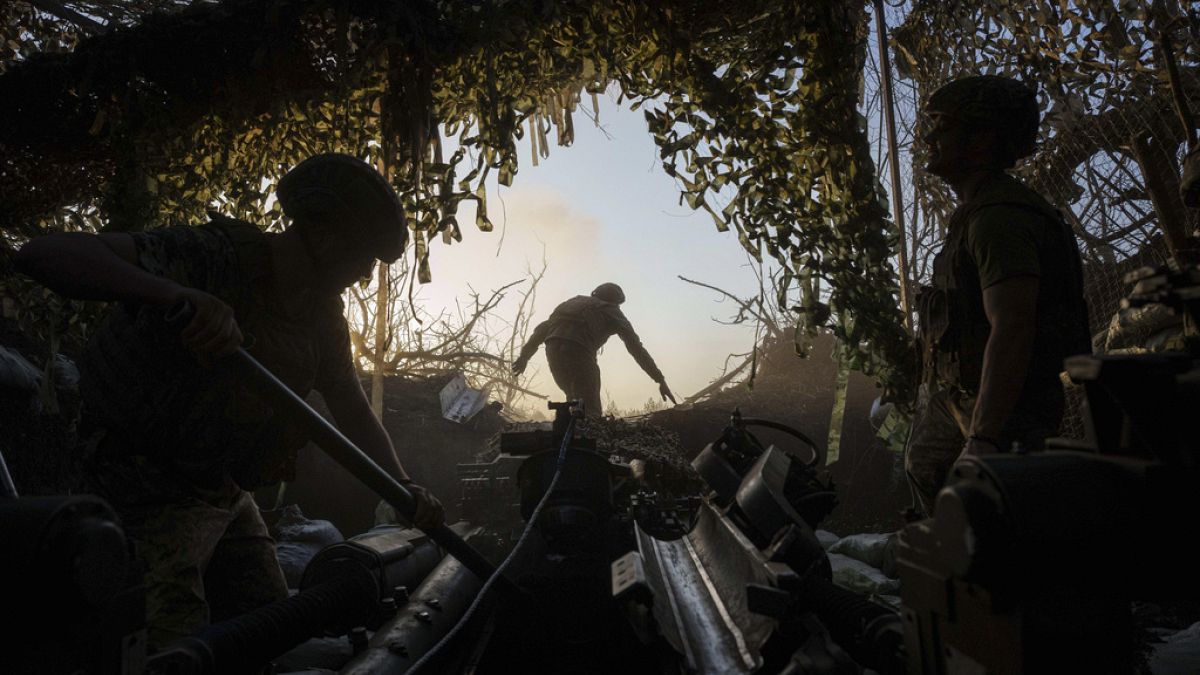Europe
Three years of war in Ukraine: Here’s what the French army has learned

The Impact of the Ukraine-Russia Conflict on French Military Strategy
The ongoing conflict between Ukraine and Russia has left an indelible mark on the global military landscape, particularly influencing the strategic thinking of the French Armed Forces. Over the past three years, the high-intensity warfare and unprecedented technological innovations observed in this conflict have prompted the French military to reassess its approach to modern warfare. The conflict, which escalated significantly following Russia’s full-scale invasion of Ukraine in 2022, has become a case study for understanding the future of warfare. The French Army has taken significant steps to adapt to these new realities, including the establishment of the Future Combat Command (CCF) in 2023. This specialized unit is tasked with driving innovation and ensuring the French military remains prepared for the challenges of tomorrow. As General Rodolphe Hardy, second-in-command of the CCF, emphasized, "In the end, it’s the innovation and adaptability that we’ve seen throughout this conflict that mobilizes our energy in terms of our own preparation."
Lessons from the High-Intensity Conflict
One of the most critical lessons the French Armed Forces have drawn from the Ukraine-Russia conflict is the importance of adaptability in the face of rapidly evolving technologies and tactics. The conflict has showcased how modern warfare is no longer confined to traditional avenues but now encompasses advanced technologies such as drones, electronic warfare, and precision-guided munitions. These innovations have fundamentally altered the nature of combat, forcing military leaders to rethink their strategies and capabilities. For instance, the French military has recognized the need to enhance its electronic warfare capabilities, which have proven to be a game-changer in the conflict. As Vice-Admiral Emmanuel Slaars, Deputy Head of Operations for the French Navy, highlighted, "We need to be able to influence [the electromagnetic field], in other words, to disable its use. And this is a domain that’s moving very, very fast. We need to be very active in this area because it’s a key element."
The Rise of Electronic Warfare
Electronic warfare has emerged as a critical component of modern warfare, and the Ukraine-Russia conflict has brought its significance into sharp focus. Electronic warfare involves the use of technologies that can disrupt or disable an adversary’s ability to communicate, navigate, and operate effectively. This includes interfering with radio communications, GPS systems, and drone operations. The French military has recognized the vulnerabilities in its current capabilities and is actively working to address these gaps. As Vice-Admiral Slaars explained, "If you can’t use your cell phone because it can’t connect to a network terminal, it’s a bit complicated. So in the military field, whether it’s for communications, or GPS-based guidance systems, or for aircraft exchange systems or even the guidance of a drone without a pilot, all of this exploits the electromagnetic field." The French Armed Forces are now prioritizing the development of countermeasures and offensive capabilities in this domain to ensure they remain competitive on the battlefield.
The Second Front on the Black Sea
While much of the attention has focused on the land-based conflict, the Black Sea has emerged as a critical front in the war, offering valuable lessons for naval strategists. The French Armed Forces have closely observed how Ukraine has utilized drones to defend its territorial waters and counter Russian naval activities. Initially, Ukraine’s drones were relatively basic, but they have since evolved into sophisticated systems capable of countering helicopters and other advanced threats. These developments have underscored the importance of investing in unmanned systems and leveraging technology to gain a strategic advantage. The insights gained from this aspect of the conflict have also contributed to the establishment of a new NATO-Ukraine Joint Analysis, Training, and Education Centre in Poland. This center, inaugurated recently, aims to facilitate the sharing of knowledge and best practices, ensuring that NATO allies are better equipped to respond to the evolving nature of modern warfare.
The Evolution of Drone Technology
The conflict in Ukraine has highlighted the transformative impact of drone technology on modern warfare. Drones have played a pivotal role in both surveillance and combat operations, offering a cost-effective and versatile tool for militaries. The French Armed Forces have taken note of how Ukraine has successfully employed drones to counter Russian forces, even as the technology continues to advance. As Vice-Admiral Slaars noted, "We saw Ukrainian drones which were very basic at the beginning and which have now become high-tech, even capable of countering helicopters." This rapid evolution underscores the need for military forces to remain agile and open to innovation. The French military is now exploring ways to integrate advanced drone technologies into its operations, recognizing the potential for these systems to enhance its capabilities across multiple domains.
The Future of Military Preparedness
The lessons learned from the Ukraine-Russia conflict have far-reaching implications for the future of military strategy and preparedness. The French Armed Forces, along with their NATO allies, are increasingly recognizing the need to invest in cutting-edge technologies and foster a culture of innovation. The establishment of the Future Combat Command and the NATO-Ukraine Joint Analysis, Training, and Education Centre are testament to this commitment. As the nature of warfare continues to evolve, the ability to adapt and innovate will remain a key determinant of success on the battlefield. The French military’s proactive approach to learning from the Ukraine-Russia conflict reflects its understanding of the importance of staying ahead in an ever-changing environment. By leveraging the insights gained from this conflict, the French Armed Forces aim to enhance their capabilities and ensure they are well-prepared to face the challenges of tomorrow.


















